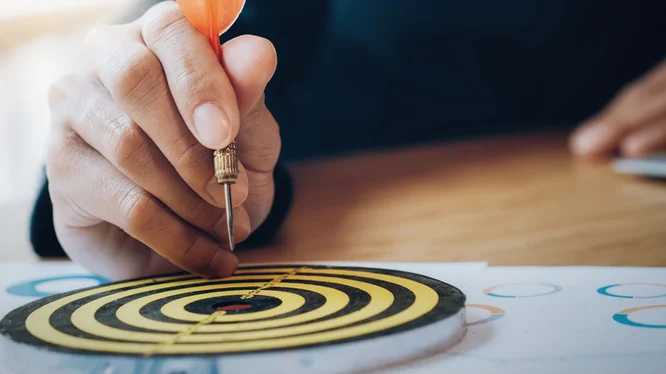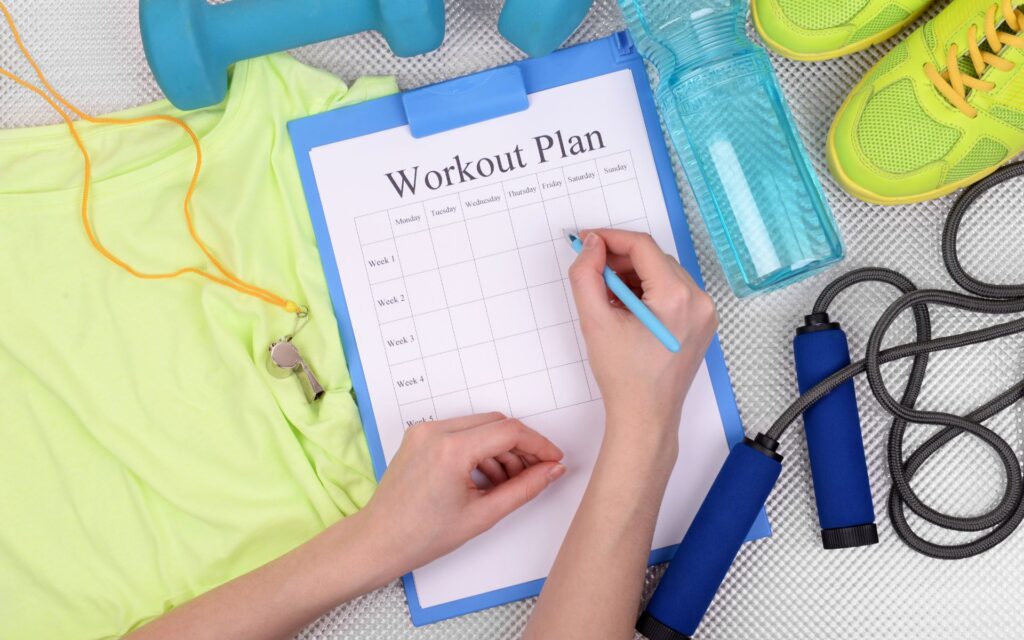Embarking on a fitness journey can be an exciting and transformative experience.
Whether your goal is to lose weight, build strength, or improve overall well-being, taking the first step can feel overwhelming.
This beginner’s guide will provide you with practical advice, actionable steps, and the motivation you need to kickstart your fitness journey and stick with it.
1. Define Your Goals

Set Clear and Specific Objectives
Before diving into workouts and meal plans, it’s important to define what you want to achieve.
Are you aiming to shed a few pounds, run a 5K, or build muscle? Setting clear, specific, and measurable goals will give you direction and purpose.
For example:
- Instead of saying, “I want to get fit,” try, “I want to lose 10 pounds in three months by exercising three times a week.”
Break Goals into Short-Term and Long-Term Milestones
Long-term goals can feel daunting, so break them into smaller, manageable steps.
For instance, if your ultimate aim is to run a marathon, start with running one mile without stopping.
Gradually build from there.
Write Down Your Goals
Putting your goals in writing increases commitment and accountability. Keep them visible—on your fridge, desk, or phone—to remind yourself why you started.
2. Assess Your Current Fitness Level

Evaluate Your Starting Point
Understanding where you stand is key to creating a personalized fitness plan. Assess your:
- Endurance: Can you walk or jog a mile without stopping?
- Strength: How many push-ups or squats can you do?
- Flexibility: Can you touch your toes?
Take Measurements
Track baseline metrics such as weight, body measurements, or body fat percentage. These will help you monitor progress and celebrate milestones.
Consult a Professional
If you’re unsure about your fitness level, consider consulting a personal trainer or healthcare provider. They can offer valuable insights and ensure you start safely.
3. Create a Fitness Plan

Choose Activities You Enjoy
Exercise doesn’t have to be a chore. Whether it’s dancing, swimming, hiking, or weightlifting, find activities that excite you. Enjoyment increases the likelihood of consistency.
Balance Cardio, Strength, and Flexibility
A well-rounded fitness plan includes:
- Cardio: Activities like running, cycling, or aerobics improve heart health and endurance.
- Strength Training: Lifting weights or doing bodyweight exercises builds muscle and boosts metabolism.
- Flexibility and Mobility: Practices like yoga or stretching enhance range of motion and reduce injury risk.
Schedule Workouts
Consistency is key. Plan your workouts like appointments and stick to them. Start with 3-4 sessions per week, gradually increasing frequency as you build stamina.
Include Rest Days
Rest days are crucial for recovery and preventing burnout. Listen to your body and allow time for muscles to repair and grow.
4. Focus on Nutrition

Eat Balanced Meals
Nutrition plays a significant role in achieving fitness goals. Focus on:
- Protein: For muscle repair and growth (e.g., chicken, fish, tofu, beans).
- Complex Carbs: For sustained energy (e.g., whole grains, vegetables).
- Healthy Fats: For brain and heart health (e.g., nuts, avocados, olive oil).
Stay Hydrated
Water is essential for energy, recovery, and overall health. Aim for at least 8-10 cups per day, more if you’re active.
Avoid Extreme Diets
Fad diets often lead to short-term results and long-term frustration. Instead, focus on sustainable eating habits that support your lifestyle.
5. Build Healthy Habits

Start Small
Changing too much at once can be overwhelming. Begin with small, achievable steps like:
- Walking 10 minutes daily.
- Replacing sugary drinks with water.
Create a Routine
Consistency breeds results. Incorporate fitness and healthy eating into your daily schedule to make them second nature.
Track Your Progress
Use a journal, app, or fitness tracker to log workouts, meals, and achievements. Seeing progress over time will keep you motivated.
Stay Flexible
Life happens, and it’s okay to miss a workout or indulge occasionally. Adapt your plan as needed without guilt.
6. Overcome Challenges

Address Common Barriers
- Lack of Time: Prioritize short, high-intensity workouts.
- Low Motivation: Find an accountability partner or join a fitness class.
- Plateaus: Mix up your routine to keep progress steady.
Celebrate Small Wins
Recognize and reward milestones, no matter how small. Celebrating progress reinforces positive behavior.
Stay Patient
Results take time. Focus on consistency and enjoy the journey rather than obsessing over quick fixes.
7. Seek Support

Join a Community
Fitness is more fun with others. Join a gym, group class, or online community to connect with like-minded individuals.
Work with a Trainer
A certified trainer can design personalized workouts, ensure proper form, and keep you accountable.
Involve Friends and Family
Share your goals with loved ones and invite them to join you. Their support can make a big difference.
8. Measure and Adjust Your Plan

Reassess Regularly
Every few weeks, revisit your goals and progress. Adjust your plan based on what’s working and what isn’t.
Embrace Change
As you grow stronger and fitter, challenge yourself with new goals and activities to avoid stagnation.
Celebrate the Journey
Remember, fitness is a lifelong commitment. Celebrate how far you’ve come and enjoy the process.
FAQs: Your Fitness Journey Questions Answered
How Often Should Beginners Exercise?
Start with 3-4 sessions per week, including a mix of cardio, strength training, and flexibility exercises. Gradually increase as your fitness improves.
What’s the Best Diet for Fitness Beginners?
Focus on balanced, whole foods. Avoid restrictive diets and aim for a mix of protein, complex carbs, and healthy fats.
How Do I Stay Motivated?
Set realistic goals, track progress, and celebrate milestones. Find activities you enjoy and consider working with a trainer or joining a group.
How Long Before I See Results?
Results vary, but most people notice changes in energy levels within weeks. Visible results often take 4-8 weeks, depending on consistency and effort.
What If I Miss a Workout?
Missing a workout isn’t the end of the world. Stay flexible, adjust your plan, and get back on track the next day.
How Do I Prevent Injuries?
Warm up before exercising, use proper form, and include rest days. Consult a professional if you’re unsure about technique.
Can I Start Fitness at Any Age?
Absolutely! Fitness is for everyone, regardless of age. Tailor your routine to your current fitness level and consult a professional if needed.
Embarking on a fitness journey may feel challenging, but with the right mindset and plan, it can become a rewarding part of your life.
Take it one step at a time, and remember, consistency is the key to success.
